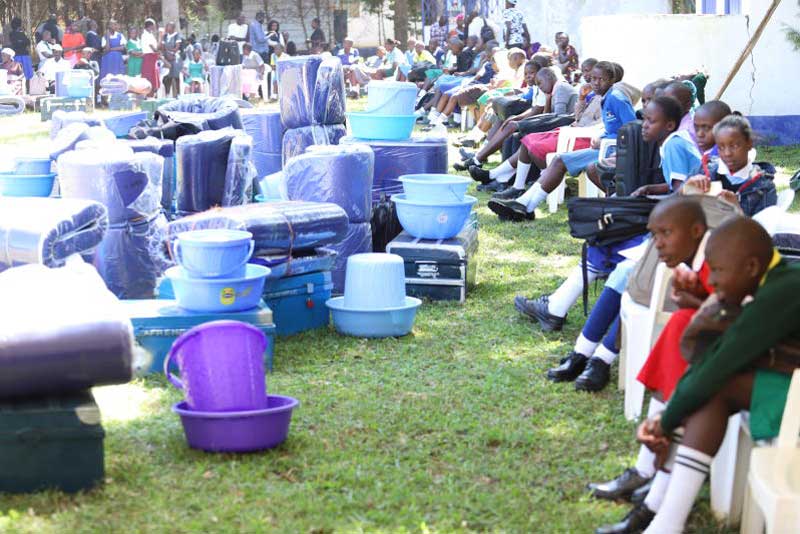In the recent past, cases of bullying in secondary schools especially for form one students were common nearly in all schools.
Cases of students being beaten up by those in senior classes, their belongings taken away, and being threatened were highly prevalent both in boys’ and girls’ secondary schools.
According to research by Africa Mental Health Foundation, students in national schools experience more bullying at 70 percent compared to their counterparts in provincial schools at 60 percent.
In addition, students in forms one and two suffer the highest rates of direct bullying compared to those in senior forms.
This bullying takes place at school in dormitories, playgrounds, corridors, and on the way to and from school, away from adult supervision. While this behavior has eased in some schools, it is still a nightmare in other institutions.
Jacky Wairimu a parent at one of the girls’ schools in Nairobi narrated how her daughter, Joan Kendi a form one student lost all her pocket money to a fellow student who convinced her that she was the school bursar.
Co-op Bank increases ATM daily withdrawal limit to Sh. 60,000
Speaking at the school during form one parents’ orientation day, Wairimu revealed that her daughter reported that she was approached by another girl who instructed her to hand over her pocket money for safekeeping.
Having heard other students say their pocket money was at the bursar’s office, Kendi quickly handed over the money without questioning, unaware she was about to be conned.
“My daughter said she gave a certain girl her pocket money thinking that she was the school bursar. The girl was dressed differently from other students so Kendi thought she was telling the truth,” Wairimu said.
According to Wairimu, the student took advantage of her daughter being new in the school to con her.
She only discovered that she had been conned when she went to the bursar’s office to ask for some money for her use, only to find a new face in the office.
An investigation by the school to uncover the culprit was futile as Kendi had not marked the face that preyed on her.
To prevent similar future occurrences, the school administration banned the use of cash money and directed all learners to get a CoopPay Card (pocket money card) from Co-op Bank.
Co-op Bank’s CoopPay Card is a Visa pre-paid card that you can load upfront and give your child to shop at the school canteen.
Parents can load the card from anywhere, anytime via Mpesa paybill 400200 or the nearest Co-op Bank branch.
What’s more, parents don’t need to have a Co-op Account to apply for the card.
”In case the student needs cash e.g. for bus fare on school closing day, they can withdraw at the school Co-op Agent or any Co-op ATM outside the school,’’ the school principal said.
”You will receive an SMS every time the card is used, and you can print mini statements from the nearest Co-op ATM or Co-op Bank Agent. Therefore you can track when and where the card is used,’’ she added.
To apply for the card, she advised parents to visit the nearest Co-op Bank Branch with a copy of their ID, KRA PIN, a copy of the student’s birth certificate, and a passport photo.
Did you love the story? You can also share YOUR story and get it published on Bizna Click here to get started.






